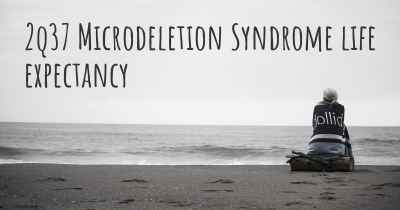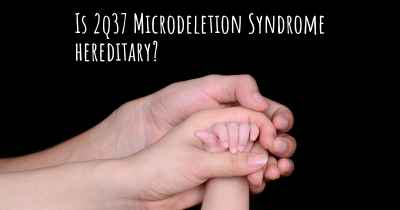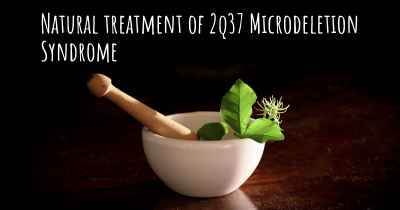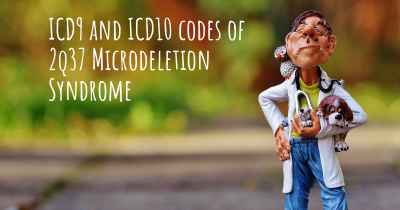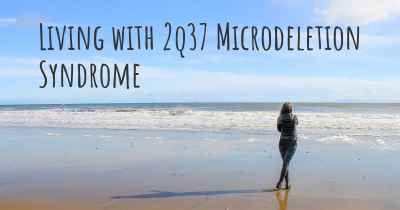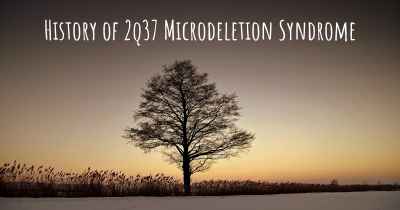2q37 Microdeletion Syndrome diet. Is there a diet which improves the quality of life of people with 2q37 Microdeletion Syndrome?
Are you aware of a diet that can improve the quality of life of people with 2q37 Microdeletion Syndrome? Is there a diet that is suggested to avoid when having 2q37 Microdeletion Syndrome? See if there is a diet that can improve the quality of life of people with 2q37 Microdeletion Syndrome, recommended and to avoid food when having 2q37 Microdeletion Syndrome

2q37 Microdeletion Syndrome Diet: Improving Quality of Life
2q37 Microdeletion Syndrome, also known as deletion 2q37 or Albright hereditary osteodystrophy-like syndrome, is a rare genetic disorder caused by the deletion of a small piece of genetic material on the long arm of chromosome 2. This syndrome can lead to a variety of physical, developmental, and intellectual challenges for affected individuals.
While there is no specific diet that can cure or reverse the genetic abnormalities associated with 2q37 Microdeletion Syndrome, a well-balanced and nutritious diet can play a crucial role in improving the overall quality of life for individuals with this condition. A healthy diet can help manage symptoms, support optimal growth and development, and promote overall well-being.
Key Nutritional Considerations:
1. Macronutrients: A balanced diet should include adequate amounts of carbohydrates, proteins, and fats. Carbohydrates provide energy, proteins support growth and repair, and fats are essential for brain development and hormone production. Consult with a registered dietitian to determine the appropriate macronutrient distribution based on individual needs.
2. Micronutrients: Certain micronutrients play a crucial role in supporting various bodily functions and can be particularly important for individuals with 2q37 Microdeletion Syndrome. These include:
- Calcium and Vitamin D: Individuals with this syndrome may be at an increased risk of developing osteoporosis or low bone density. Adequate intake of calcium and vitamin D is essential for bone health. Good sources of calcium include dairy products, leafy green vegetables, and fortified foods. Vitamin D can be obtained from sunlight exposure and fortified foods or supplements.
- Iron: Iron deficiency anemia is common in individuals with 2q37 Microdeletion Syndrome. Iron-rich foods such as lean meats, beans, fortified cereals, and leafy green vegetables should be included in the diet. Vitamin C-rich foods can enhance iron absorption.
- Omega-3 Fatty Acids: These healthy fats have been shown to support brain health and cognitive function. Good sources include fatty fish (salmon, mackerel), walnuts, flaxseeds, and chia seeds.
- Antioxidants: Including a variety of fruits and vegetables in the diet can provide essential antioxidants that help protect cells from damage.
3. Fiber: Adequate fiber intake is important for maintaining regular bowel movements and preventing constipation. Whole grains, fruits, vegetables, and legumes are excellent sources of dietary fiber.
4. Hydration: Staying well-hydrated is essential for overall health. Encourage individuals with 2q37 Microdeletion Syndrome to drink sufficient fluids throughout the day, especially water.
Additional Considerations:
1. Individualized Approach: Each person with 2q37 Microdeletion Syndrome is unique, and their nutritional needs may vary. It is important to work with a healthcare professional or registered dietitian to develop an individualized nutrition plan based on specific requirements, preferences, and any existing medical conditions.
2. Feeding Challenges: Some individuals with 2q37 Microdeletion Syndrome may experience feeding difficulties, such as oral motor dysfunction or sensory issues. In such cases, a speech therapist or occupational therapist specializing in feeding therapy can provide guidance and support to ensure adequate nutrition.
3. Supplementation: In certain cases, dietary supplements may be recommended to address specific nutrient deficiencies or to support overall health. However, it is important to consult with a healthcare professional before starting any supplements.
4. Regular Monitoring: Regular medical check-ups and monitoring of growth, development, and nutritional status are essential for individuals with 2q37 Microdeletion Syndrome. This helps identify any nutritional deficiencies or concerns that may require intervention.
Conclusion:
While there is no specific diet that can cure or treat 2q37 Microdeletion Syndrome, a well-balanced and nutritious diet can significantly improve the quality of life for individuals with this condition. Adequate intake of macronutrients, micronutrients, fiber, and fluids, along with individualized care and monitoring, can help support optimal growth, development, and overall well-being. It is important to work closely with healthcare professionals and registered dietitians to create a personalized nutrition plan that meets the unique needs of each individual.
